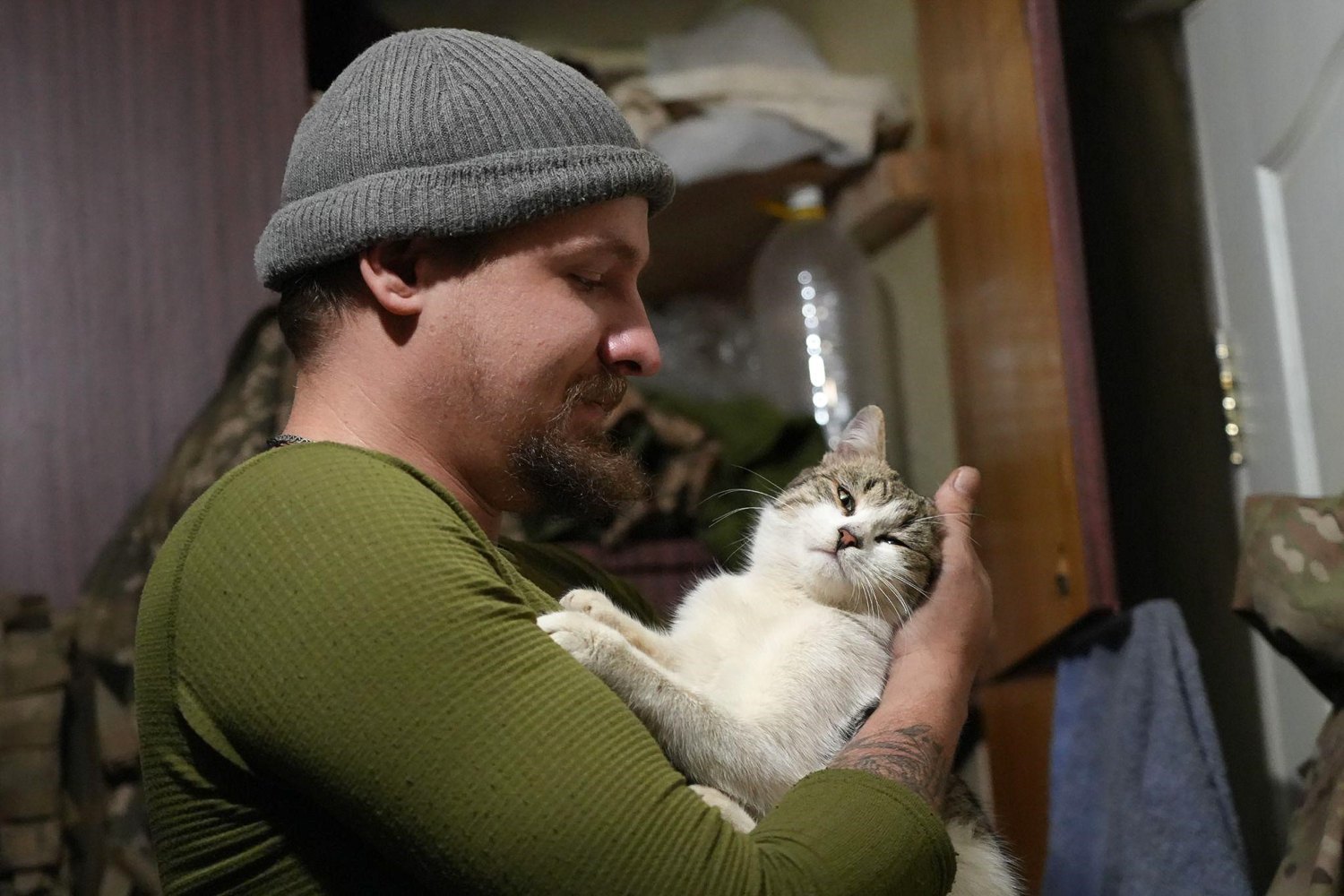"A year in this damn Donbas should count as three. You don't recognise Lyosha now, because he's a ‘cool guy’. He's grown up. I'm an old man now," Serhiy says mockingly, stretching his injured knees. Joints hurt from constant overuse. "The war took away my health, and now I have constant pressure." He points to the blood pressure monitor.
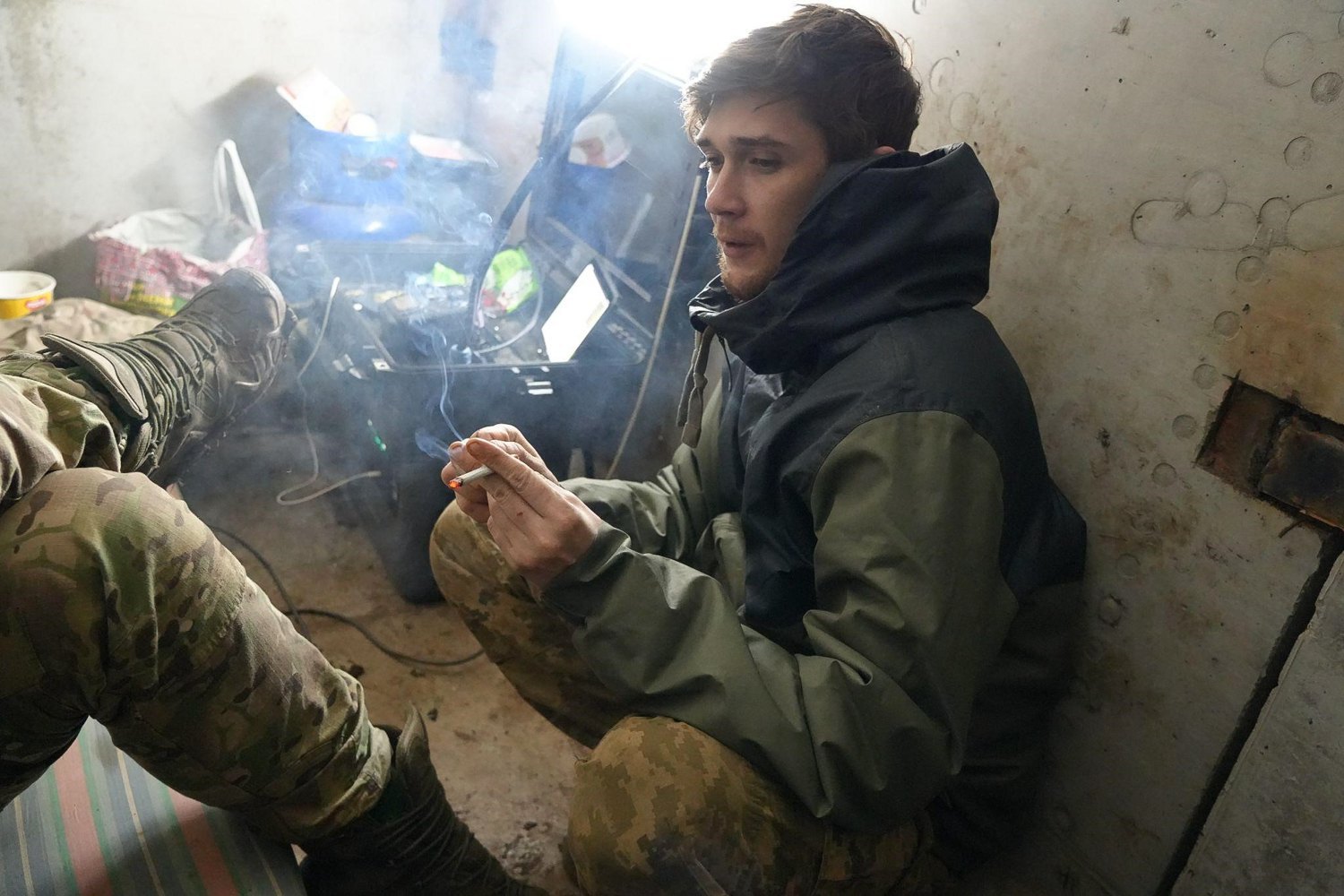
"I don't understand... My grandfather had an apiary and never had any problems. And now I have an allergy. I was even afraid to tell the guys that I was in intensive care. I did not return to the front because of the bee. The guys would say I was lying."
He lays down to rest for a couple of hours, looks at the map, looking at the red pieces of new parts of the frontline captured by the Russians... "Lately, they’ve been pushing us like crazy." Then he turns on the video on his tiktok loudly and slowly falls asleep until the phone slips out of his hands.
The tremors of our sleepless nights
Konstakha (Kostyantynivka) is also different. It's almost impossible to fall asleep there now, but not only because of the stuffiness of the soldiers' smoky rooms and the amount of cheap instant caffeine they drink. Nights 12 kilometres from the front now sound different. Loud monotonous chatter in the walkie-talkies. From time to time, they make you hold your breath when someone falls asleep recklessly and forgets to report the short three digits that indicate the order. Then an annoying voice repeats the position's name in alarm. Endlessly long seconds. The sleepy answer allows you to exhale. Every minute something explodes, shoots, and falls to the ground with a thud. The door shakes. Instinct makes me jump out of bed. "It's the KAB (bomb) somewhere far away," I hear Serhiy's sleepy voice from the other corner of the room. "There is no escape from a direct hit from the KAB. Cover your head with a blanket, just like when you were a kid, and pretend it's air defence," he adds.
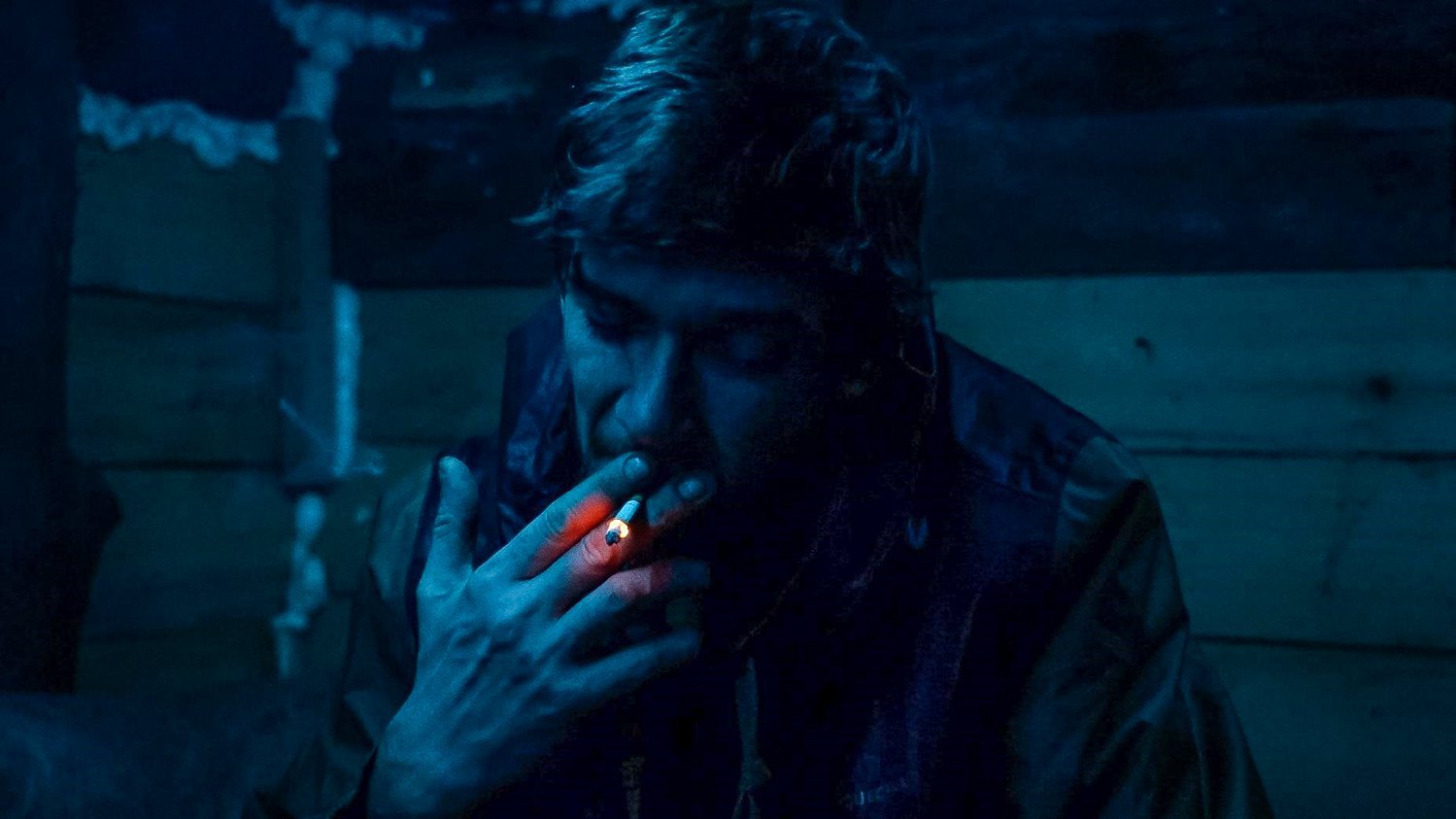
"Everything that is not inside the house is an exit. Do you remember the rule?" Lyosha repeats more and more often as he closes the cellar where I have been sitting for the last hour because of the shelling. This cellar would later become the source of many jokes. His already calm reaction eventually turned into an outright mockery of the mortal danger. He often ignores his armour and helmet, which are gathering dust in the house, and believes in luck. The louder thud of shells every time he hears them, he only smiles sarcastically. The only thing that shows the days he's been through are the large bruises under his eyes and the strands of grey that have appeared in the two years I haven't seen him. And the absence of teeth. "Everyone's teeth are gone... They say the water is bad in Donetsk Region. And there's a lack of calcium," comments an older man with the call sign Did (Grandpa). "The war is bad in Donetsk Region," replies his friend.
The same jokes about death
There are fewer and fewer hopes, and plans have disappeared with them. "What scares me the most is the uncertainty. The uncertainty when you are waiting for your comrades to return from a combat mission. And the uncertainty of what will happen next. We seem to be at war, but our horizon is limited by the knowledge of what is happening on our part of the frontline," says 45-year-old soldier Pavlo, also an anti-aircraft gunner.
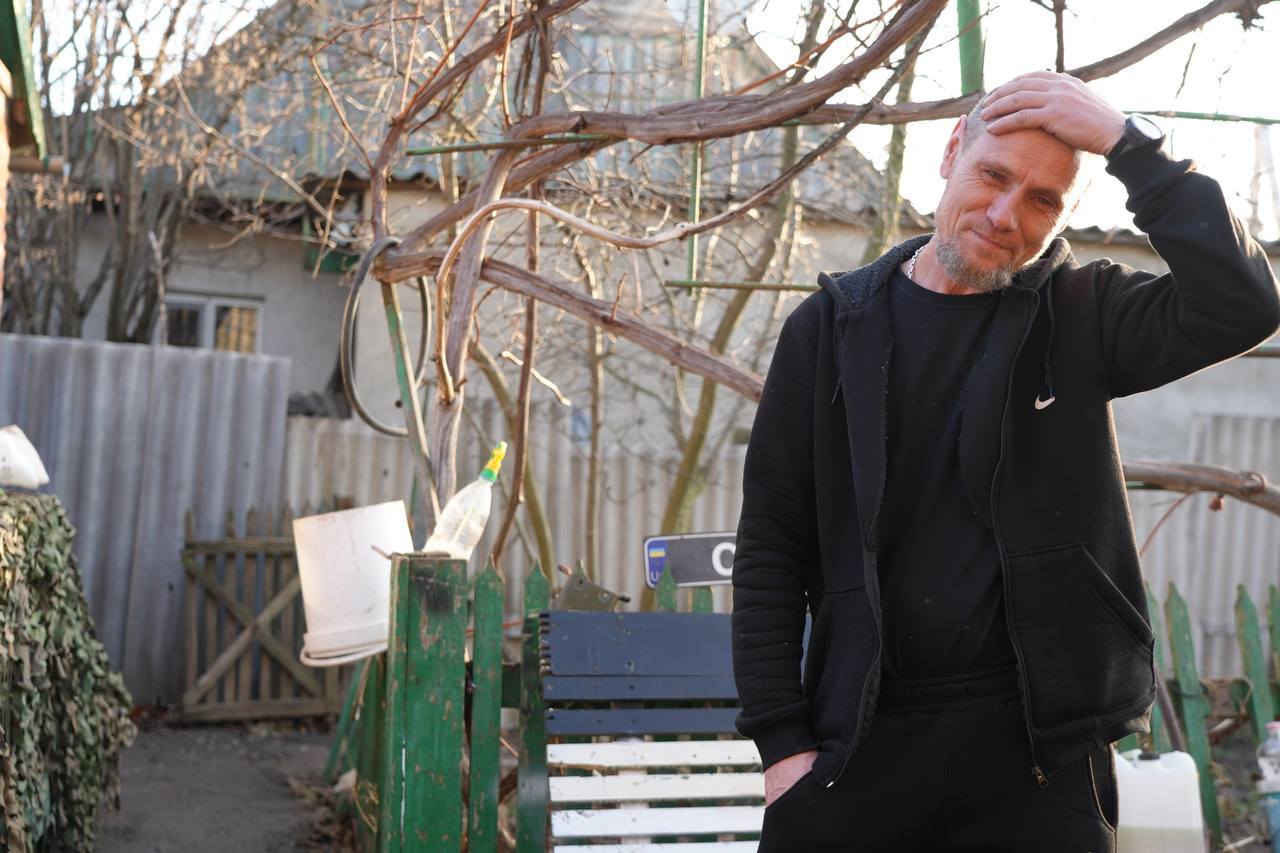
The jokes about death seem to be the same, but they have become reluctant and lazy. Death has become like that annoying ex-girlfriend who continues to text after a breakup, when love and passion have long since passed. It irritates me internally and makes me roll my eyes. "What will happen if you go there? Nothing. You'll step on a mine and only your dick will be left on a tree," is Serhiy's tired reply.
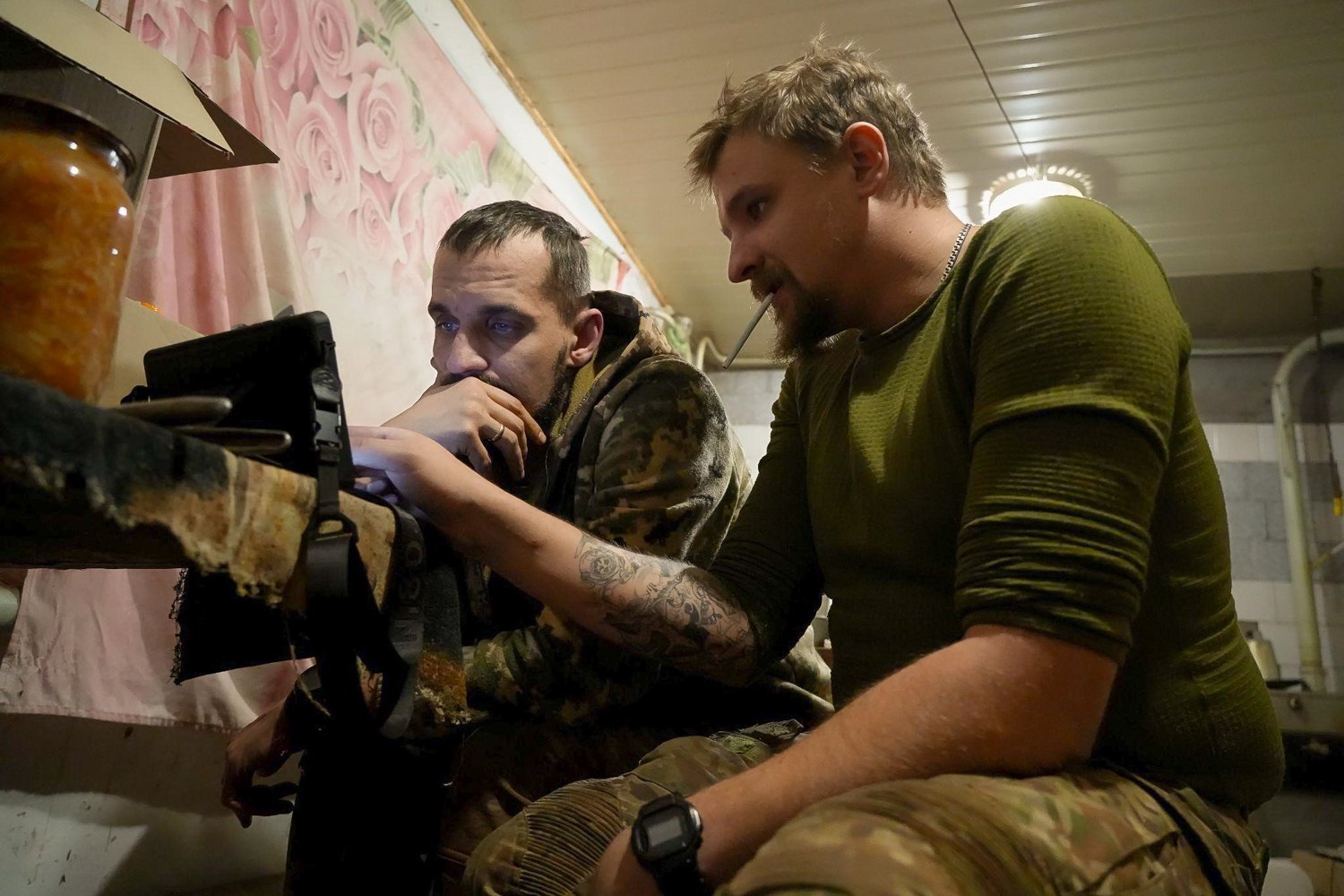
Another whistle, then a hit. Then a few more. He squints his eyes a little and tries to find the source of the sound. "I could tell you that everything will be fine, reassure you, but how do I know? I'm scared myself. It's scary in Kostyantynivka now. Please don't do what Volodya did. He fell under petrol cans during the last shelling."
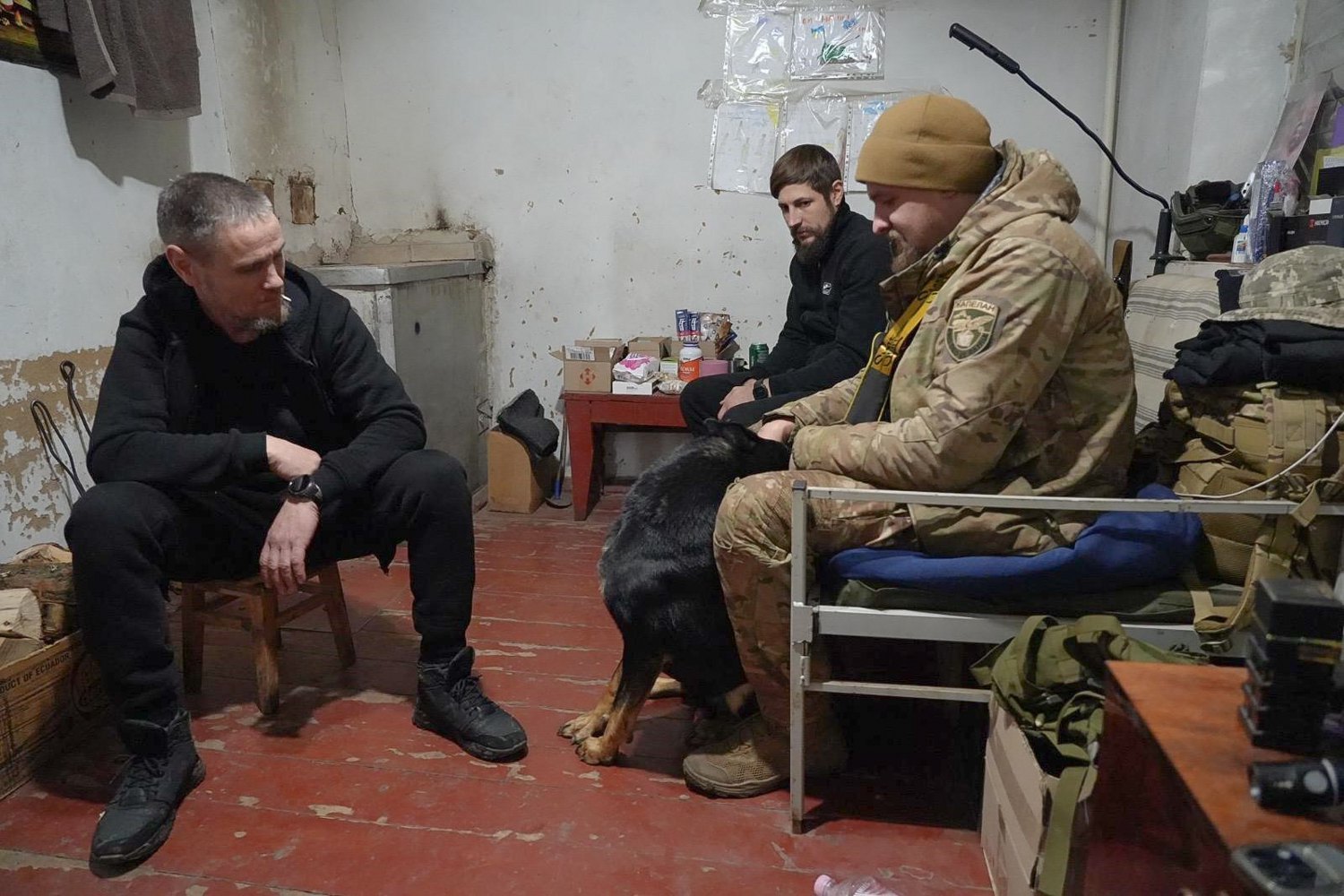
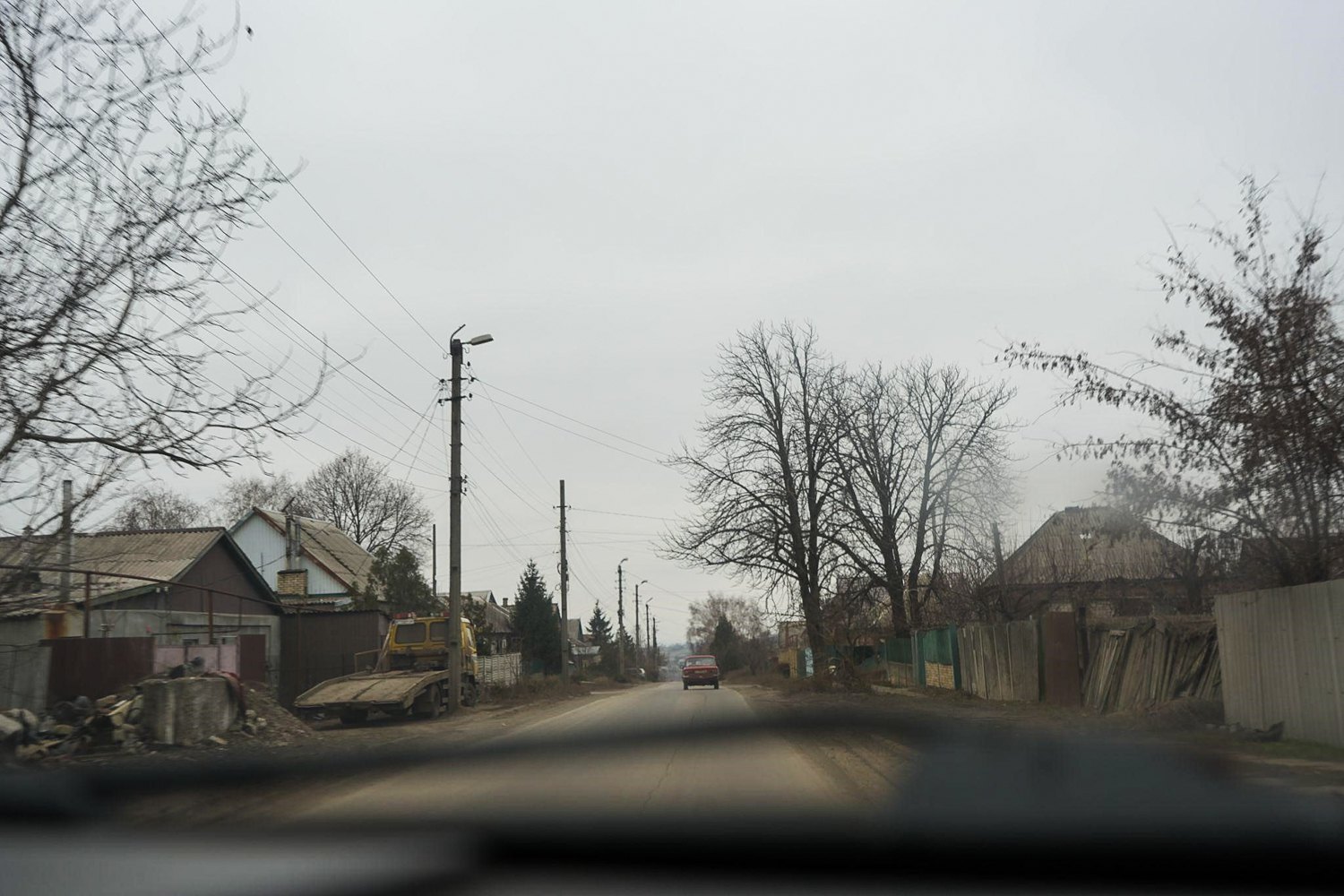
The only ritual that remained constant for the survivors was a glass of alcohol, which is still banned here, and a few cigarettes in the yard. And so it goes on until the next clash, until the next shelling.
"We are not so lucky"
The exhaustion is growing. The war weighs more and more with every day we spend here. It is becoming heavier than guided bombs.
"I'd like to hit the KAB head-on," Serhiy's comrade Dmytro, call sign Khokhol, tells me almost dreamily as we drink coffee with a large dose of sugar after returning from the positions. He started his journey in this war in the Kherson Region. Although he realised it only after some time. "With the death of my first comrade, I realised that it was all real," Dima comments. Now he puts photos of his fallen comrades into tiktok videos to keep the memory alive. Some of the soldiers say they also make tiktoks here so that ‘all this has at least some meaning’. To keep at least some memory of the events and people.
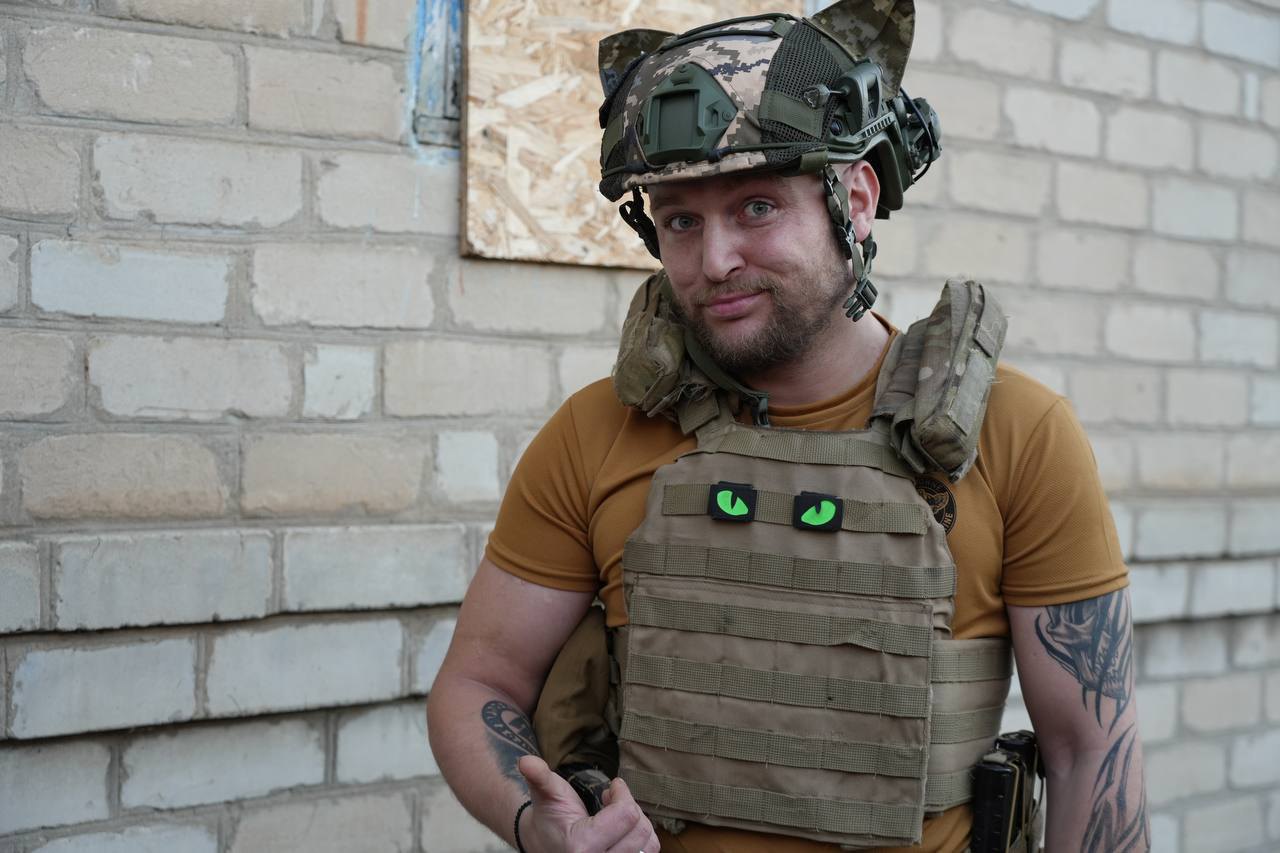
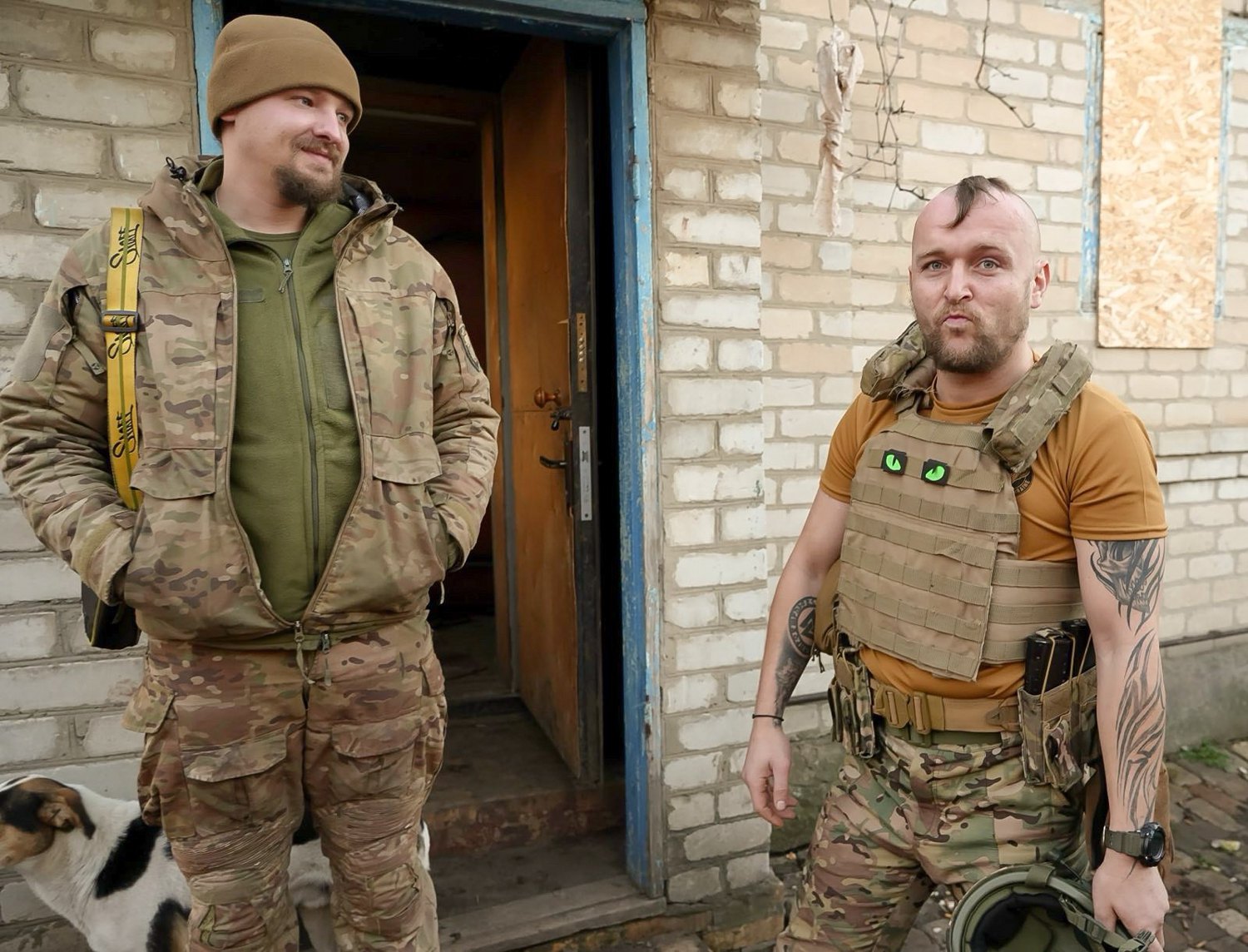
His words will strike at my already frayed nerves. ‘’We are not so lucky." It's not about everything happening quickly. No one can guarantee that such a fate will be painless, because no one can say for sure what a person who is being torn apart into molecules feels. There are things that are worse than simple death. I'm talking about the end of this war. And also about the realisation that you died in vain, a great invaluable sacrifice, a slow death from your own PTSD and premature aging, which your loved ones, for whom you fought, are watching with cold indifference.
"Now I come home and they tell me I'm crazy. Before, we were sons, heroes... And now we are stigmatised for having joined the army. That we put our health at risk here. Maybe I am crazy?" says Serhiy.
The gap between him and the civilian world is growing exponentially. They have nothing to talk about with civilians, because they still ‘don't understand’.
At the positions
These days at Chasiv Yar will be etched in my memory, but not with the smell of lilacs. I will remember them for their sticky fog, mud on my clothes, and nausea from cigarettes. But amidst all this gloom, there will be hope, it will be faintly glowing on the gas cylinders of the dugouts, it will be in the taste of morning coffee with sugar, in a few funny jokes about two days on the positions, it will be the blue colour of the garland - the only source of light. The guys have their own rating scale, and this ‘’house‘’, according to them, deserves a four because of its flimsiness.
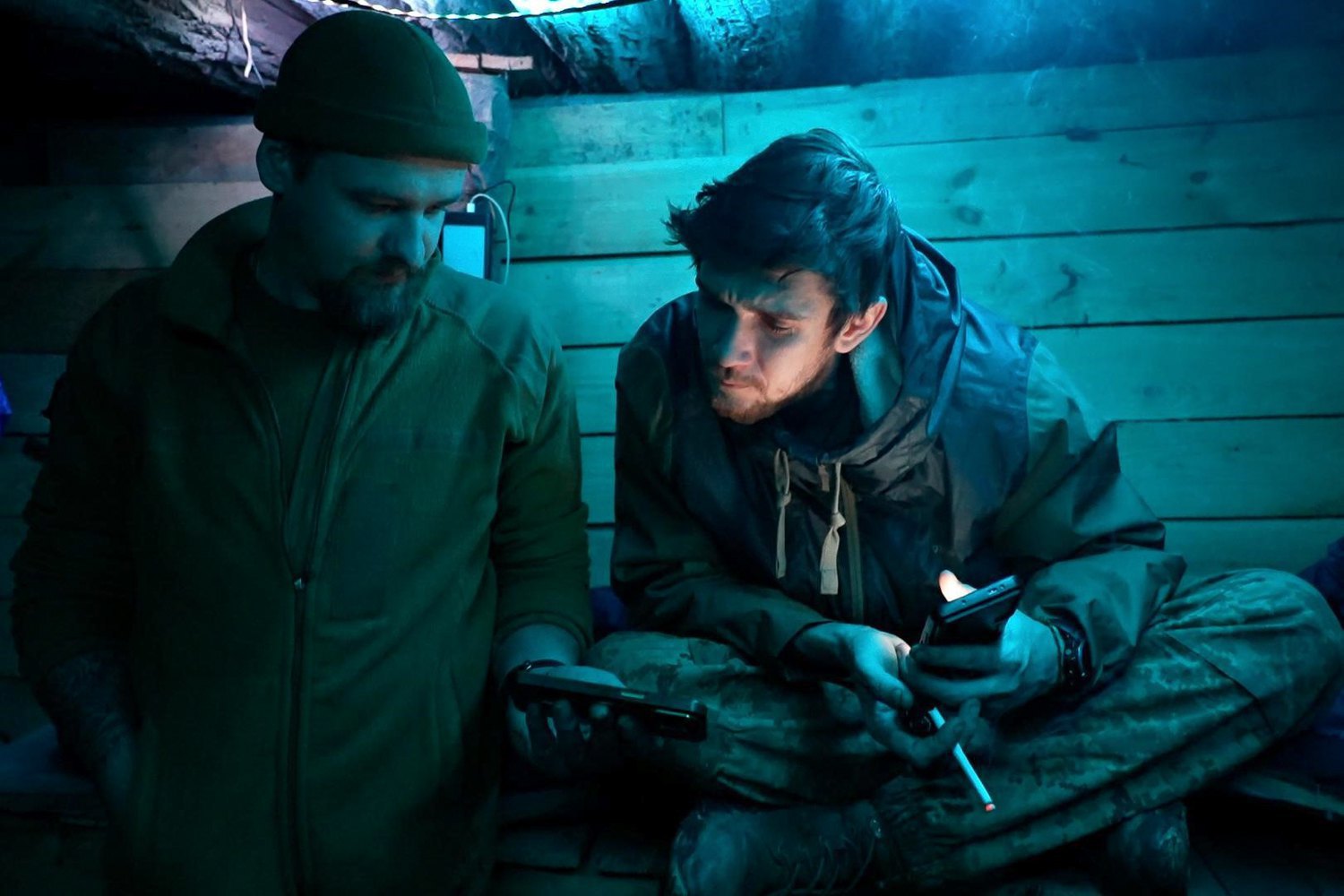

There is some kind of magic in these 30 minutes of people changing positions when Serhiy and Lyosha get together. These short intervals when they can see each other. Now, as more experienced fighters, they are divided into two shifts. And now we seem to be back in the spring of 2023 with a view of the Bakhmut heights, when everything was covered in greenery and the sky was so close.
Now there are new heroes here...
"You won't believe it. Izabar was so calm today. Artillery shells were falling around him, and he was saying: ‘Everything is fine, let's continue’."
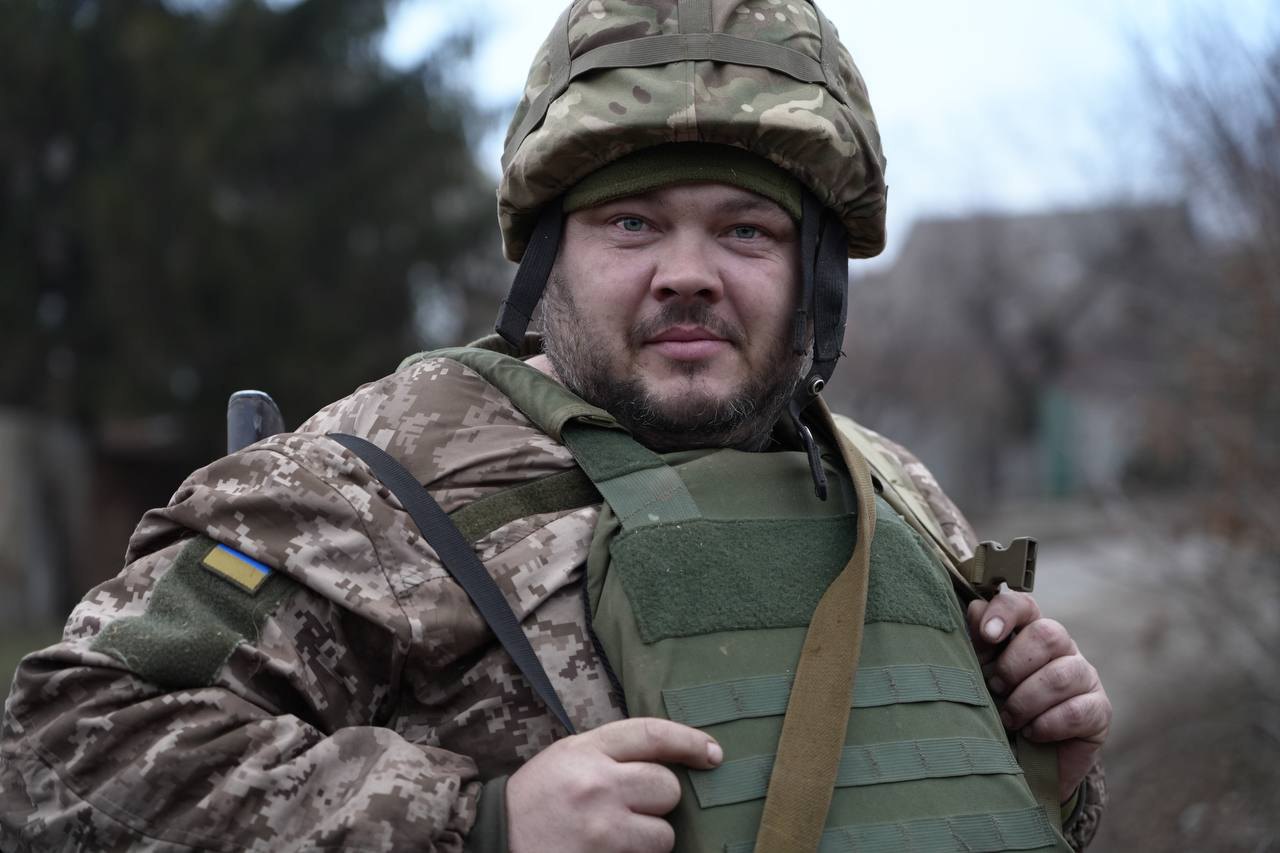
"All this is because I have been married for 22 years. I'm used to not paying attention to outside noise. My wife is shouting something, making a scene, and I'm always silent. Marriage is what prepares you for war."
"I don't read the news," Lyosha tells me and turns on another anime.
"Lyosha, they say that the great battle for Donetsk Region has reached its culmination... Do you feel the historicity of the moment?"
He rolls his eyes theatrically and replies with undisguised sarcasm, perfecting his words:
"Historicity? Tell me honestly, have you gone completely fucking mad?"
His phone has not stopped ringing for two days in the routine of numerous tasks. For the soldier, the historicity of a moment is measured in the endless ringing of the phone. And the world is measured by the limited space of a dugout.
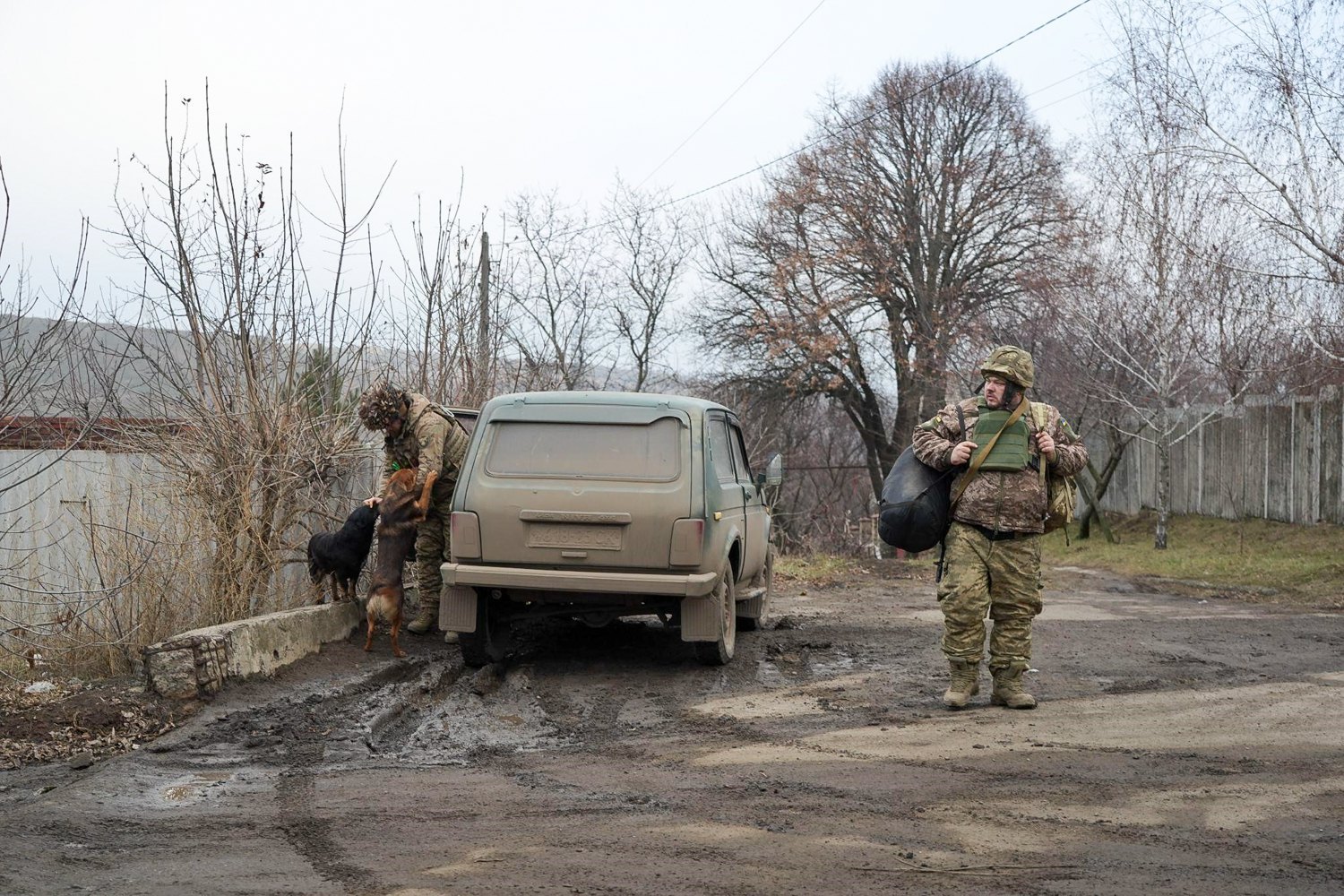
An explosion. Five hundred metres away, a thick cloud of smoke rises, climbing high up, absorbing the blue of the sky and seemingly heading straight for the sun. ‘Unlucky again,’ I think, remembering Zhenya's comment. It's only three minutes to KAB. Now a sinkhole has formed somewhere. A whole field of black ravens, which had gathered on the garbage and the glitter of the shells, takes off in alarm. In the grip of instinct, they approach the bright glow of metal. Somewhere in the distance they can see a cemetery. "It's very convenient, if we die, we can go straight to the cemetery," Serhiy comments to me.
Those who remained standing
Lyosha turned on the music in the car. "Sometimes I want to drive around Kostyantynivka in the evening like this. Remember how it used to be. When we were still young and hip," he says.
A summer Russian-language song is played at full volume in the car, and under the cover of night we drive through the evening streets of the city. This time we have a specific tour. "Here's the train station that was smashed by the KAB, and the church next to it... This area is almost destroyed," comments Lyosha and turns around to let a military pickup truck pass.
"Lyosha, do you have anybody to replace you here?"
"No. In fact, we don't need anyone who doesn't want to be here. We can't trust them with our lives. I see how many of them go to the AWOL (Absent Without Leave) afterwards. Although I don't blame them. Everyone has their own threshold of patience."
As if to confirm his words, the next day at midnight, an unexpected call rang. I could tell by my friend's worried face that he was not happy about the conversation. "Call me tomorrow - you're always welcome and we'll think about what we can do about it," he replied.
As it turned out later, the drunken voice on the other end of the phone belonged to a former comrade-in-arms who had run away from the army but decided to return. However, no one called back in the morning.
"Have you thought about the AWOL?"
"No, I have an option to get out, but I will never do that. We came together with Serhiy, and we will leave together. I won't leave him here. I'm staying for his sake. That's how we're holding on."
